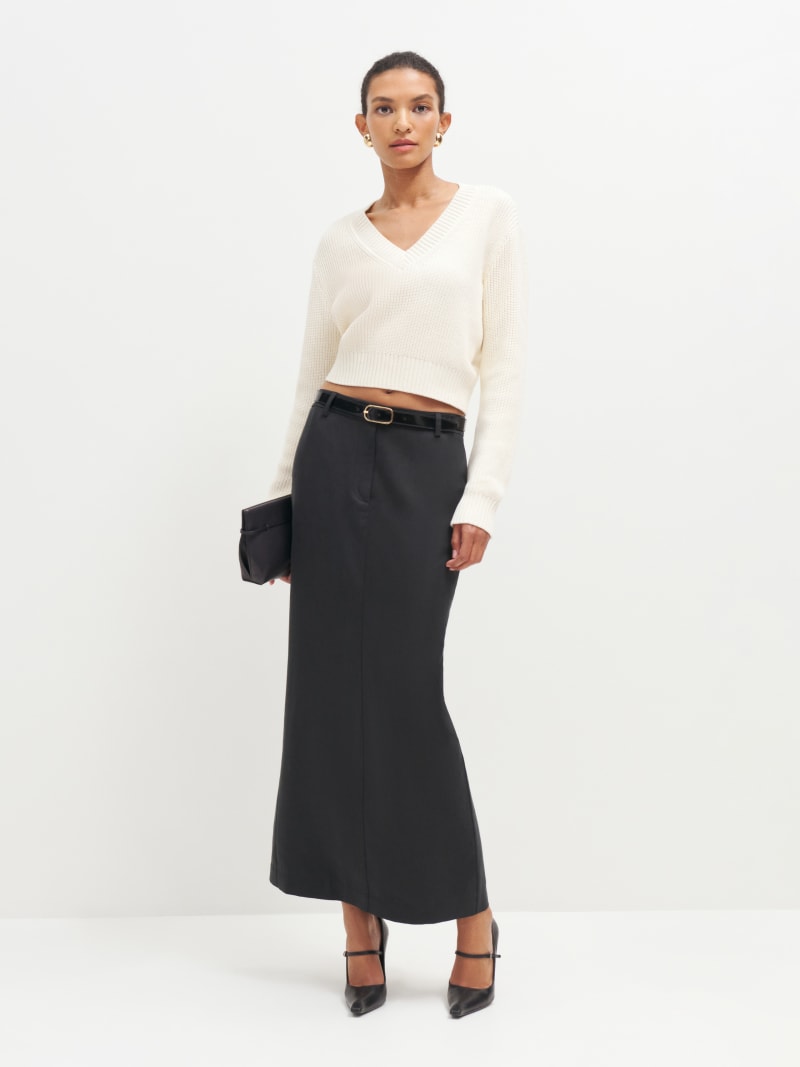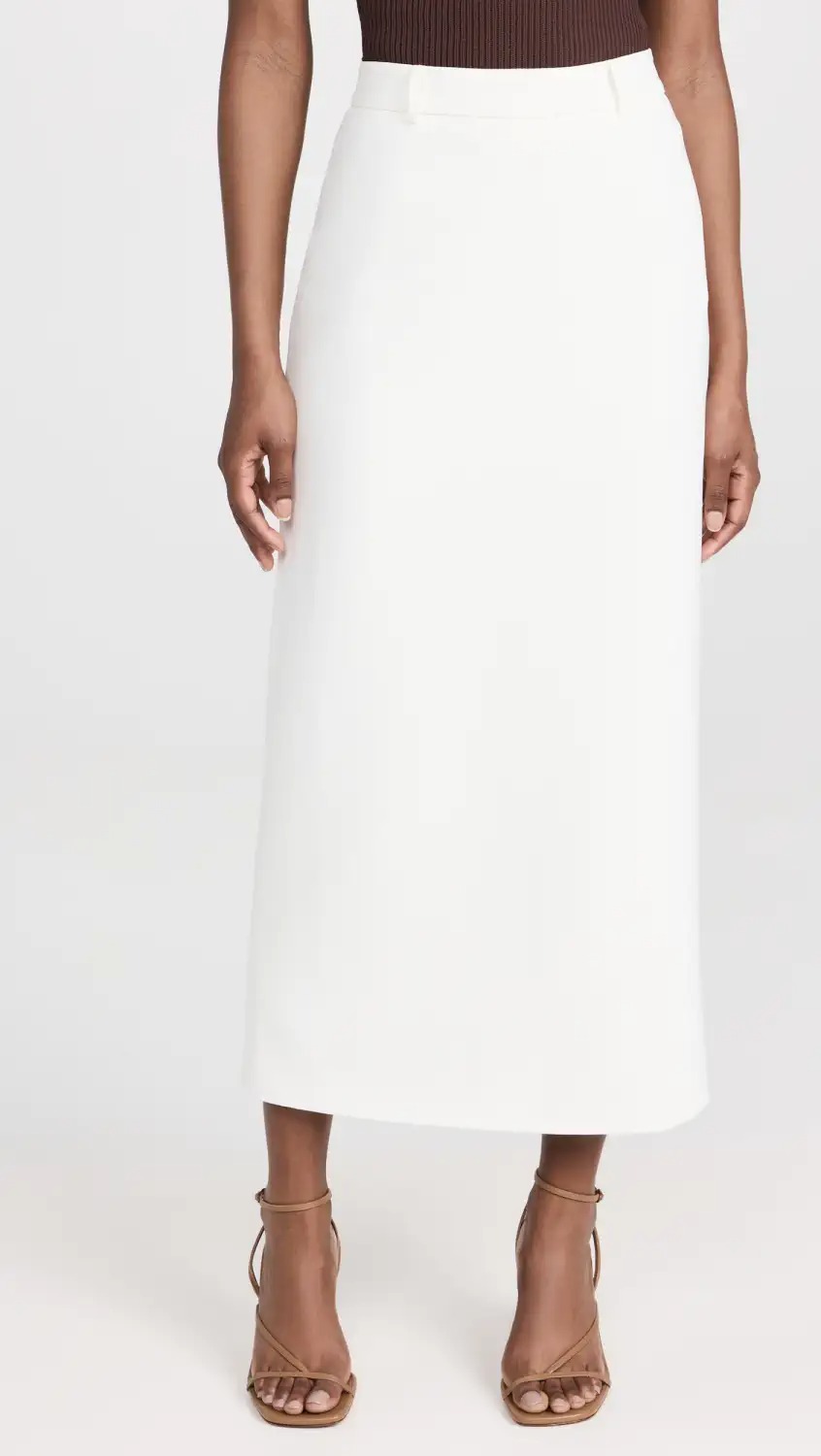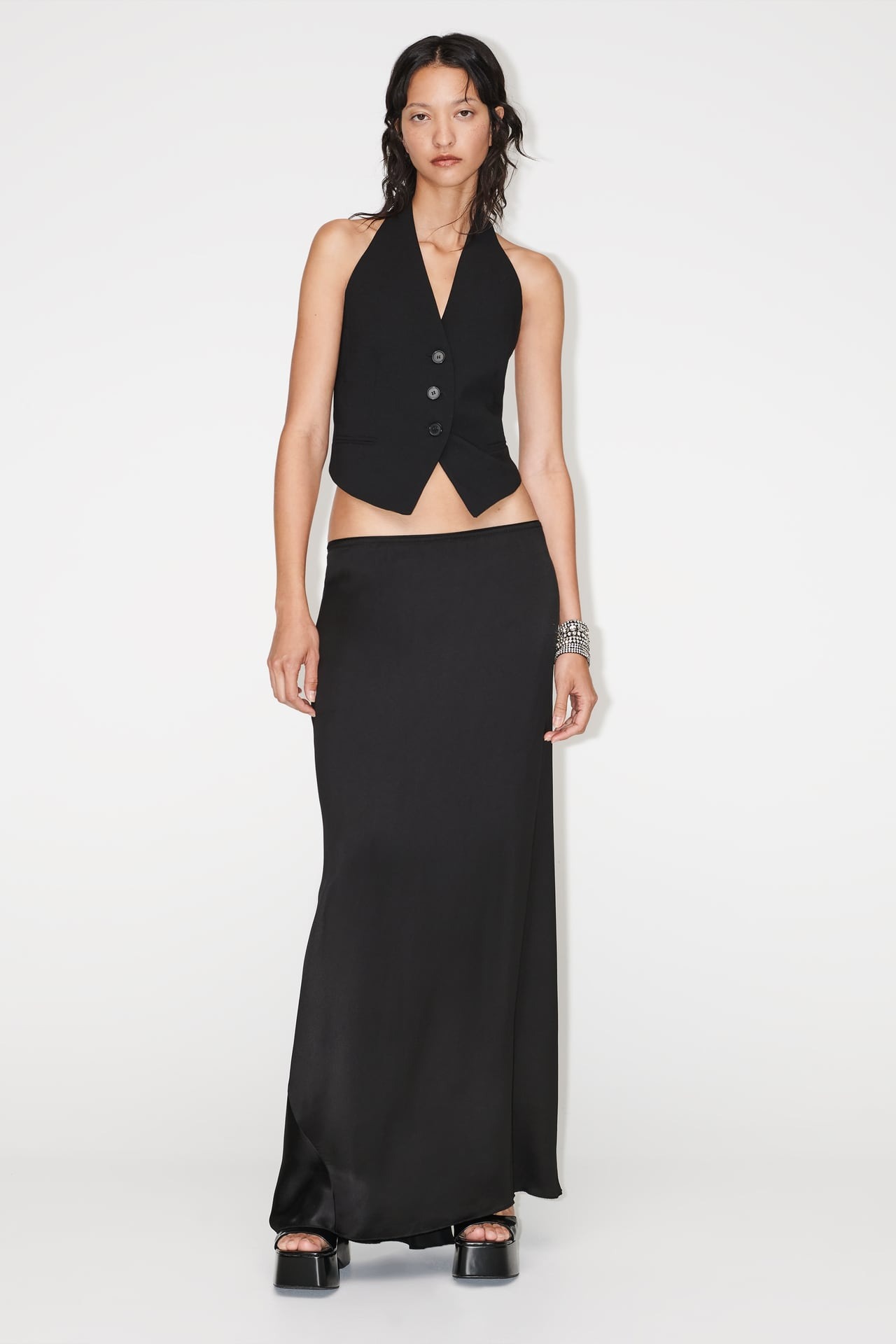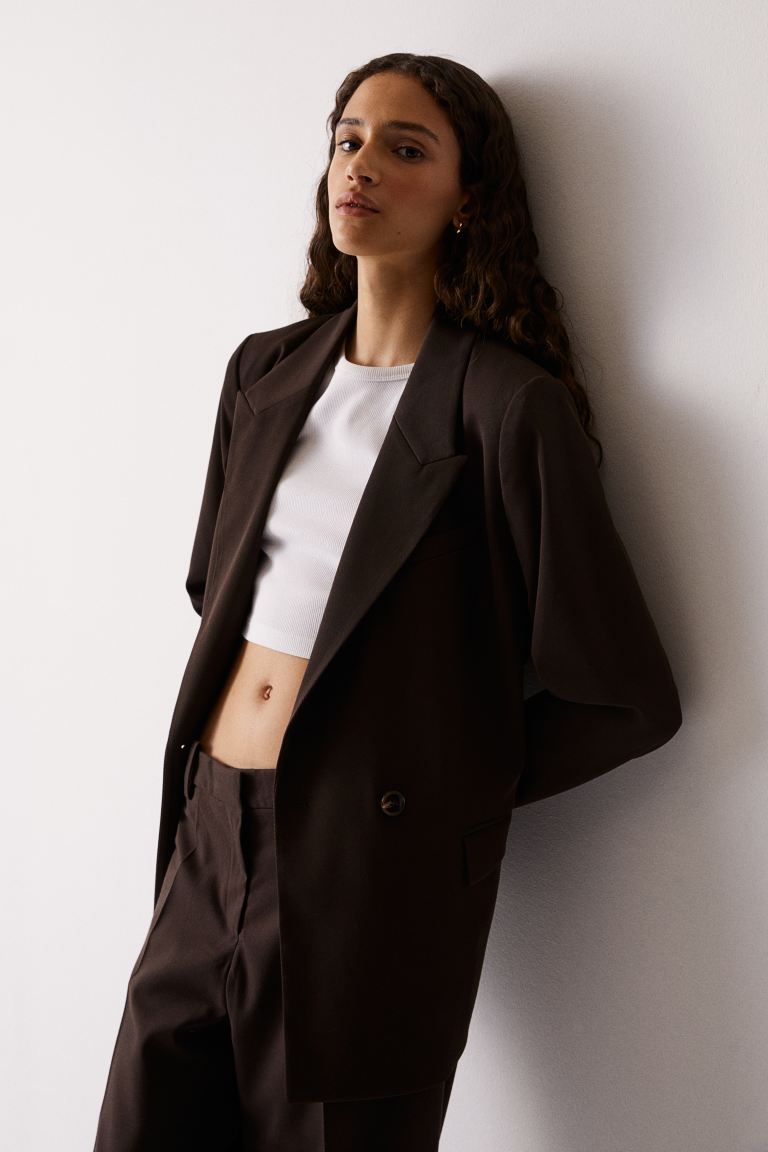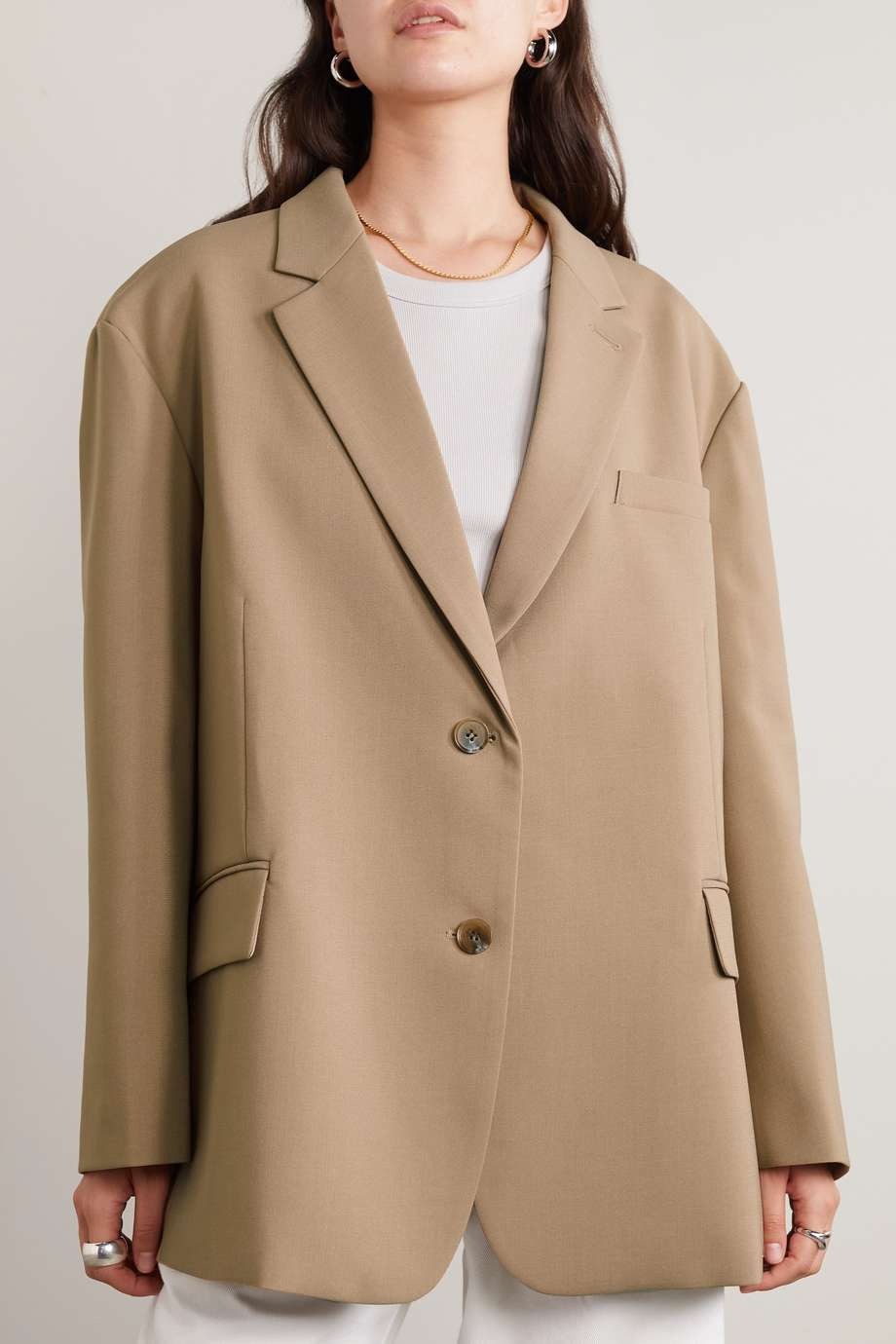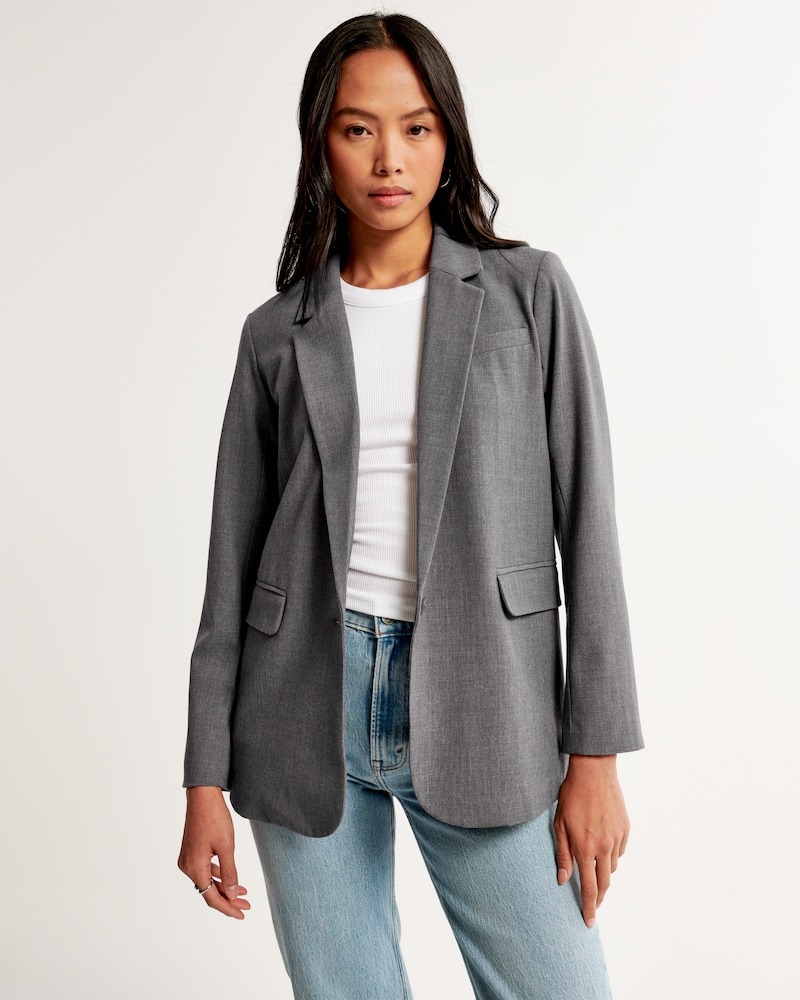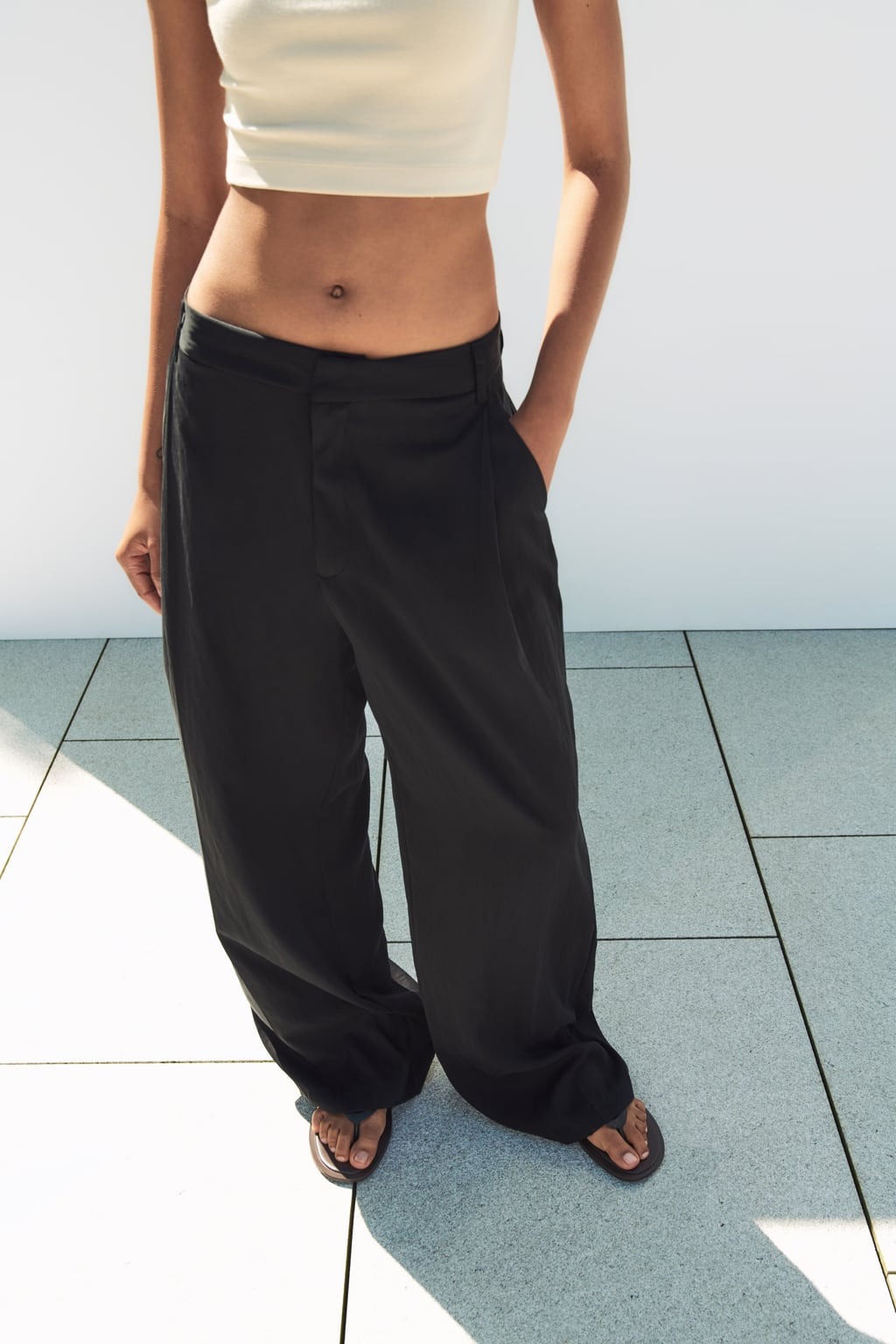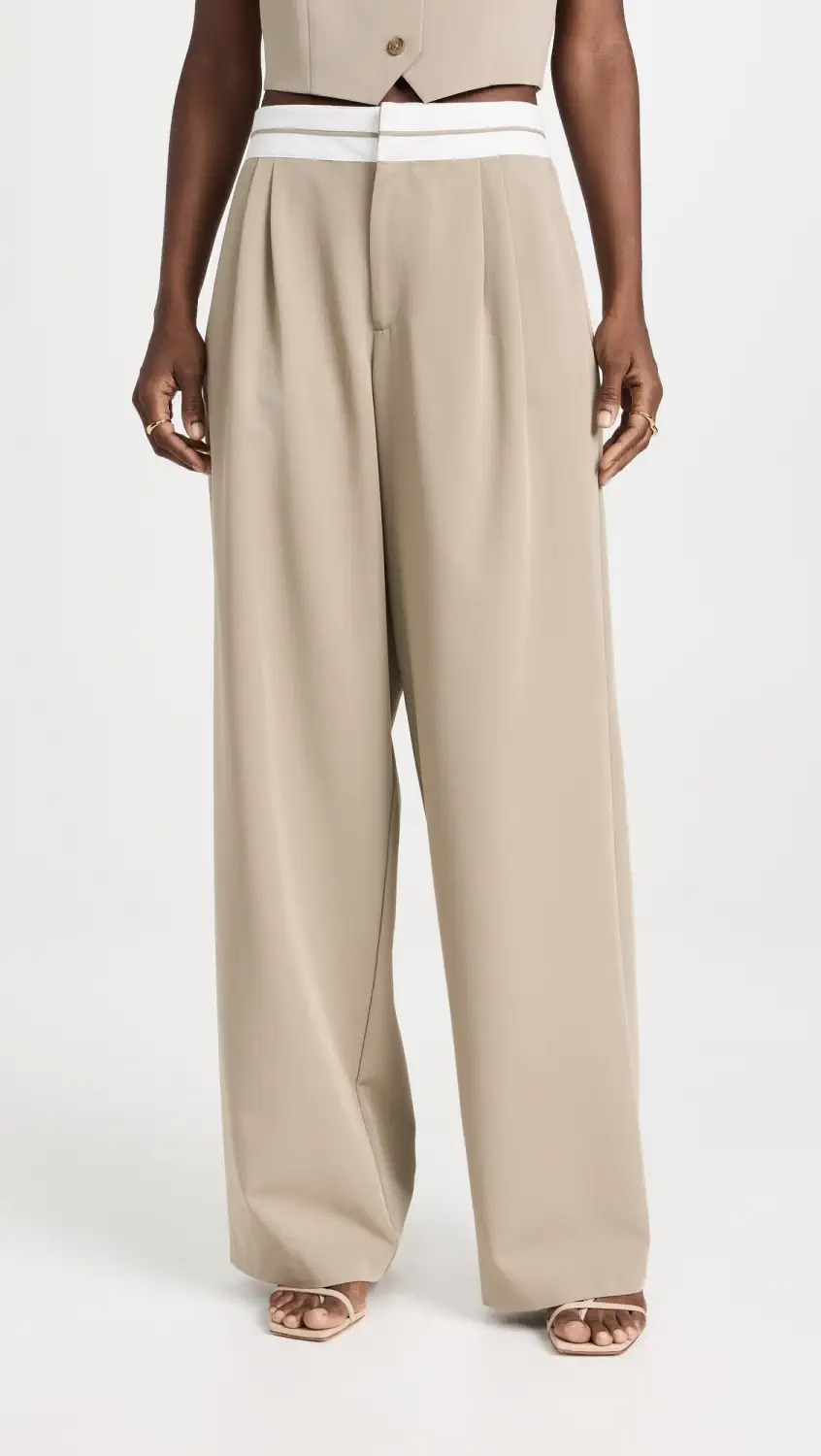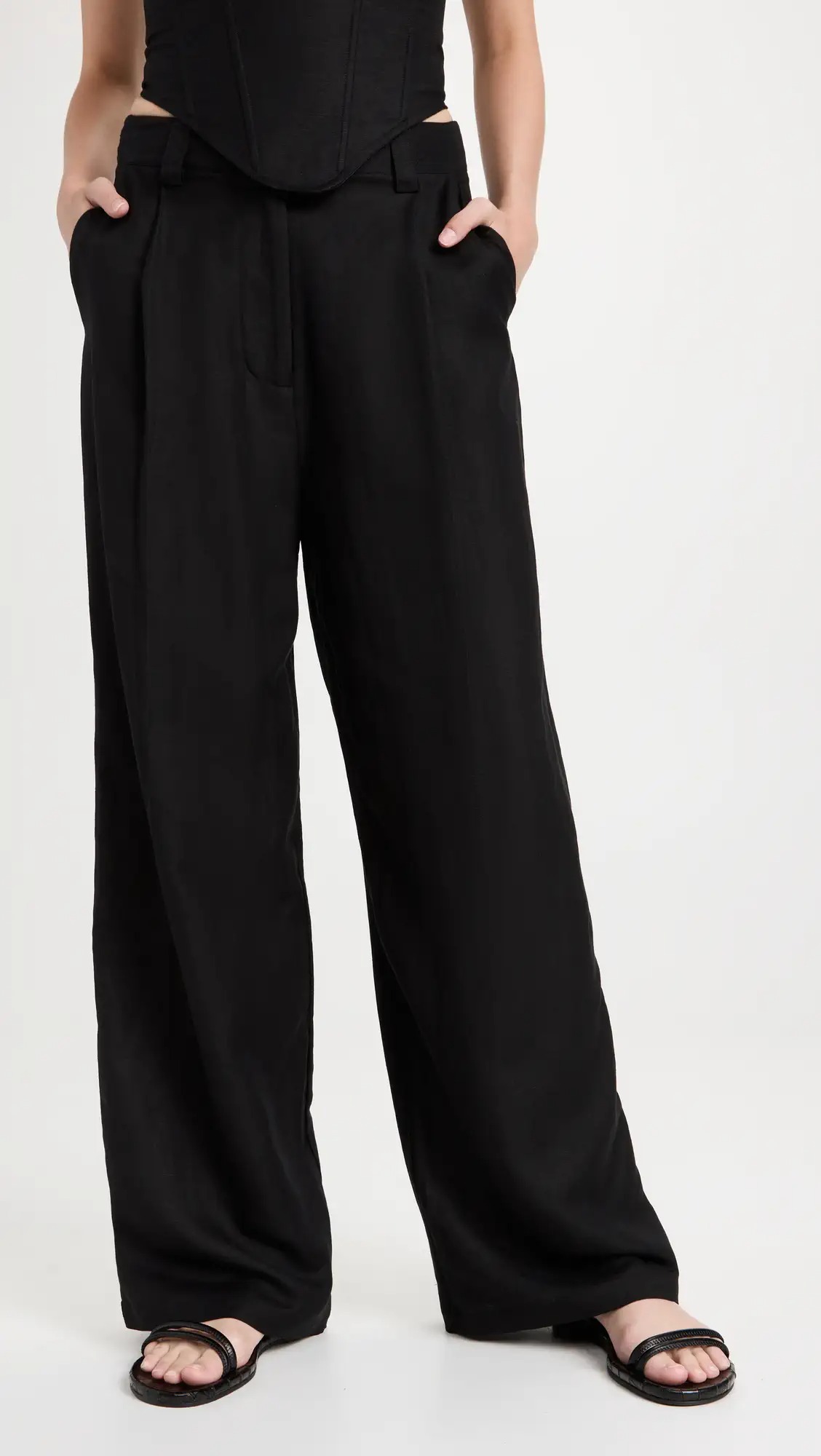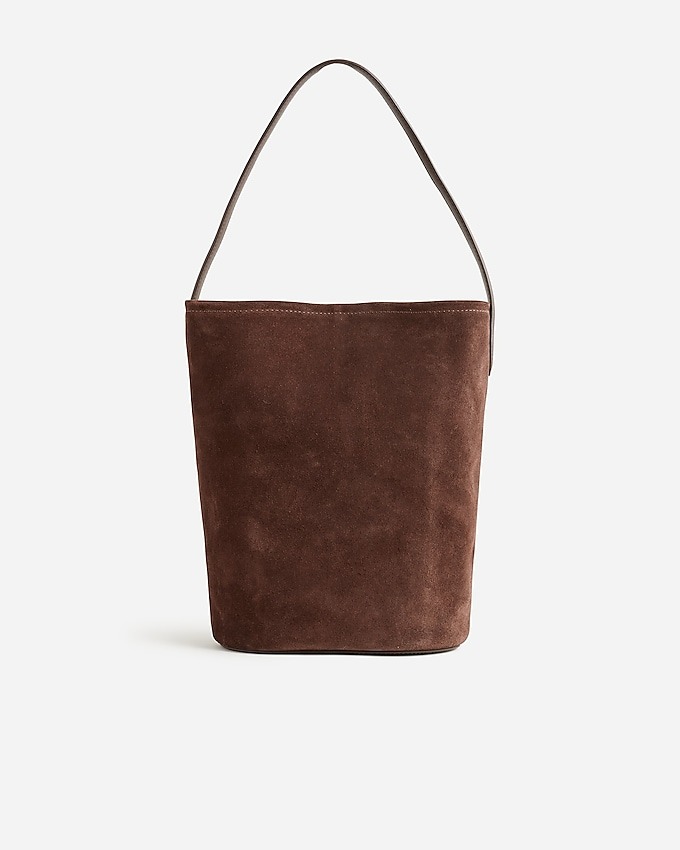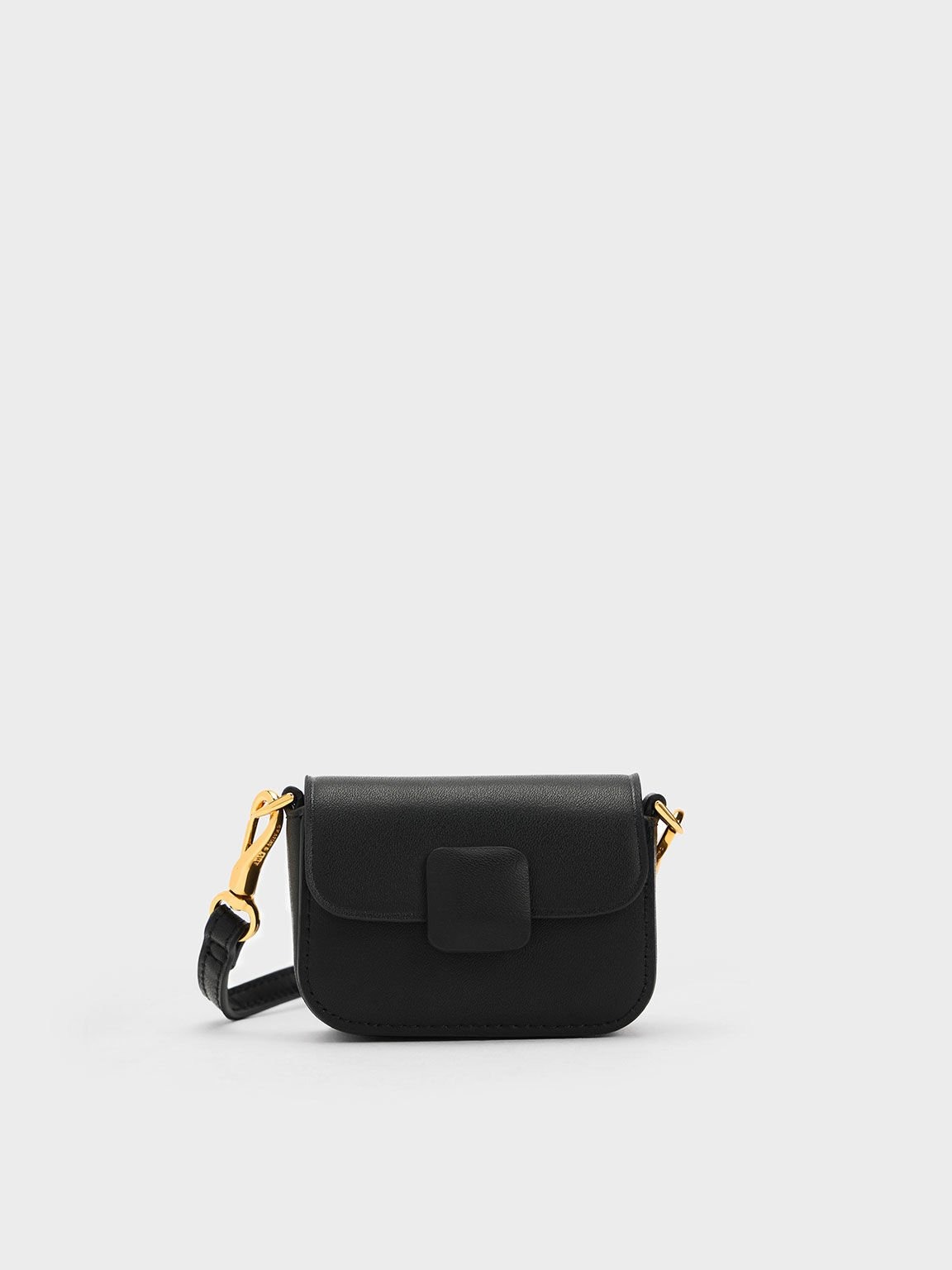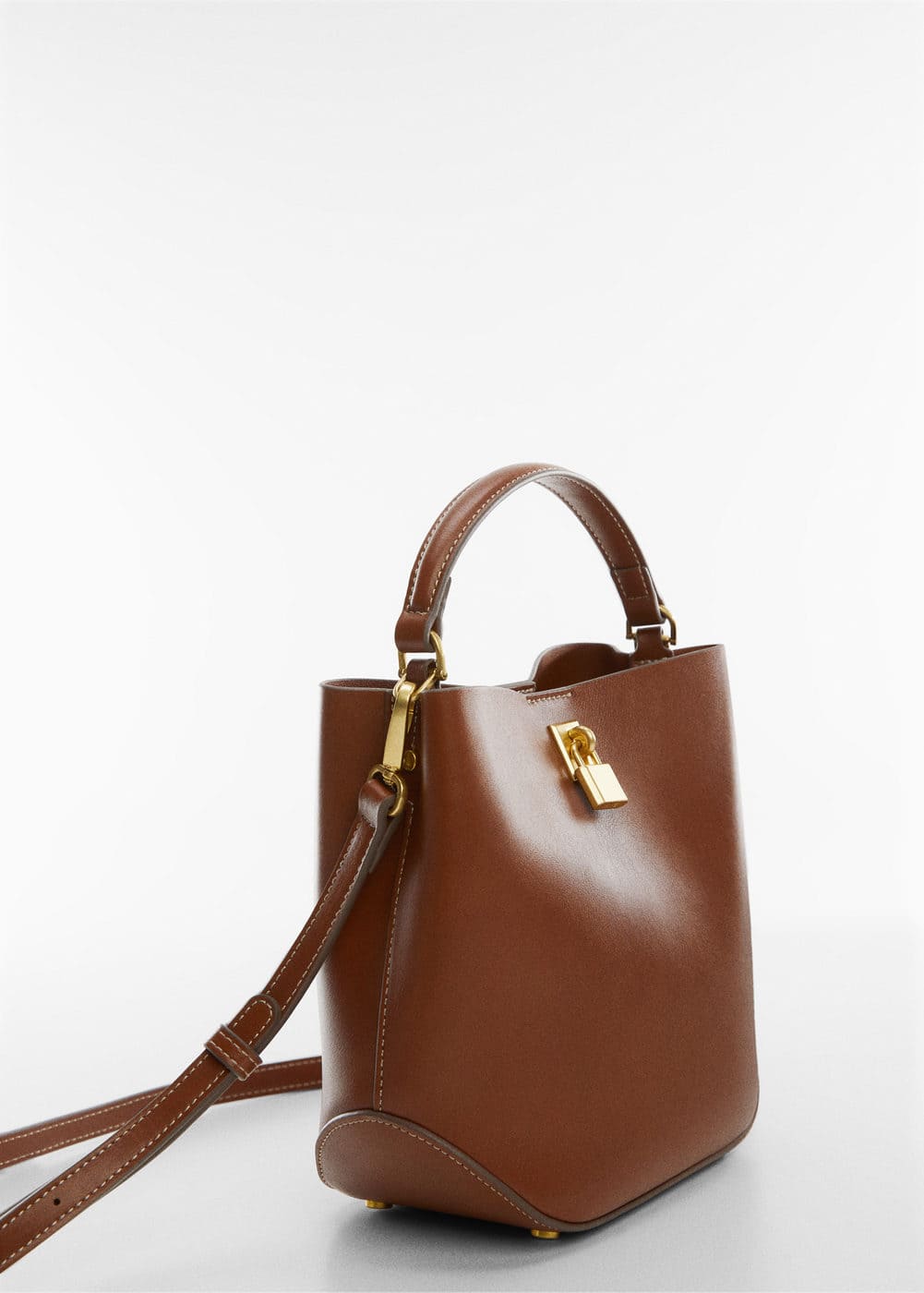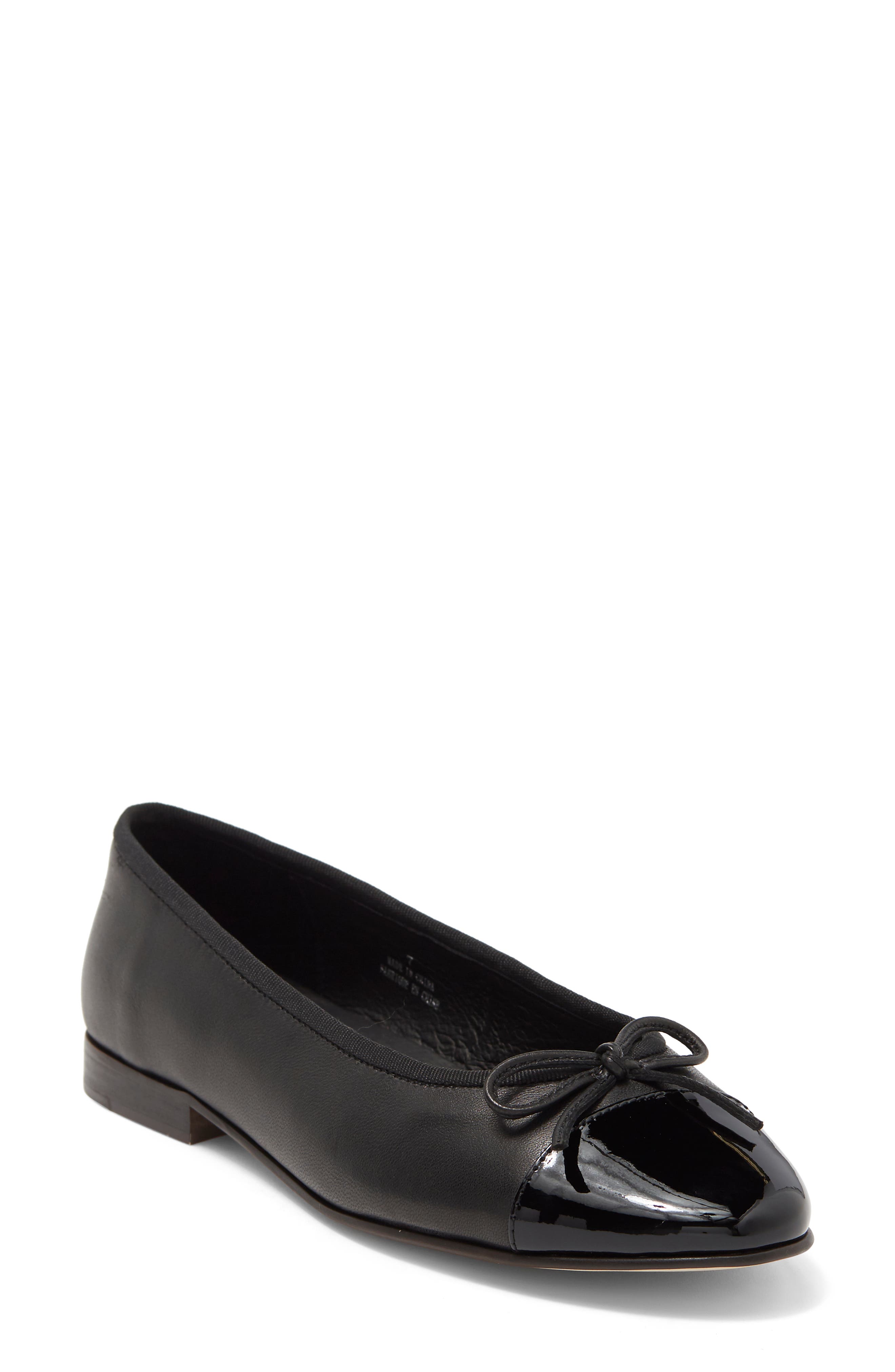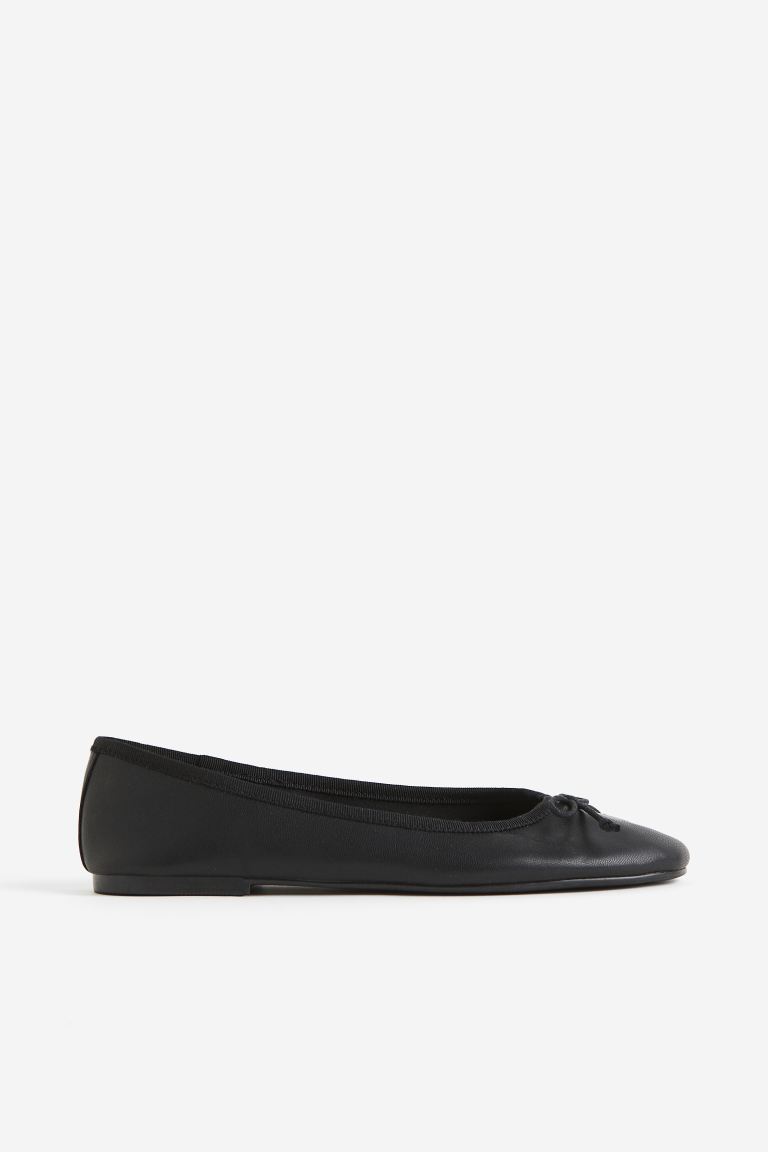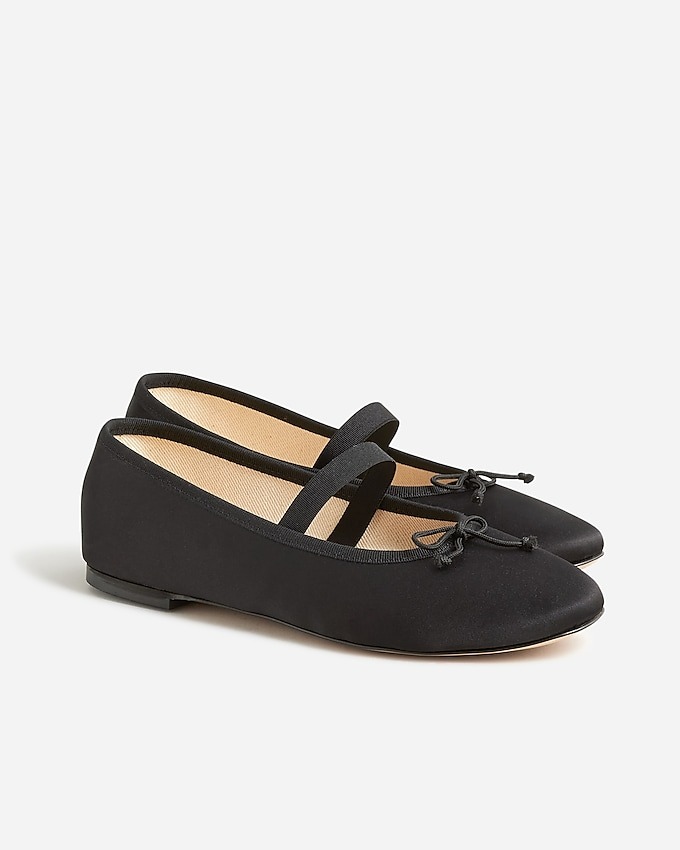Gen Z's Latest Trend? Cosplaying Rich People, of Course
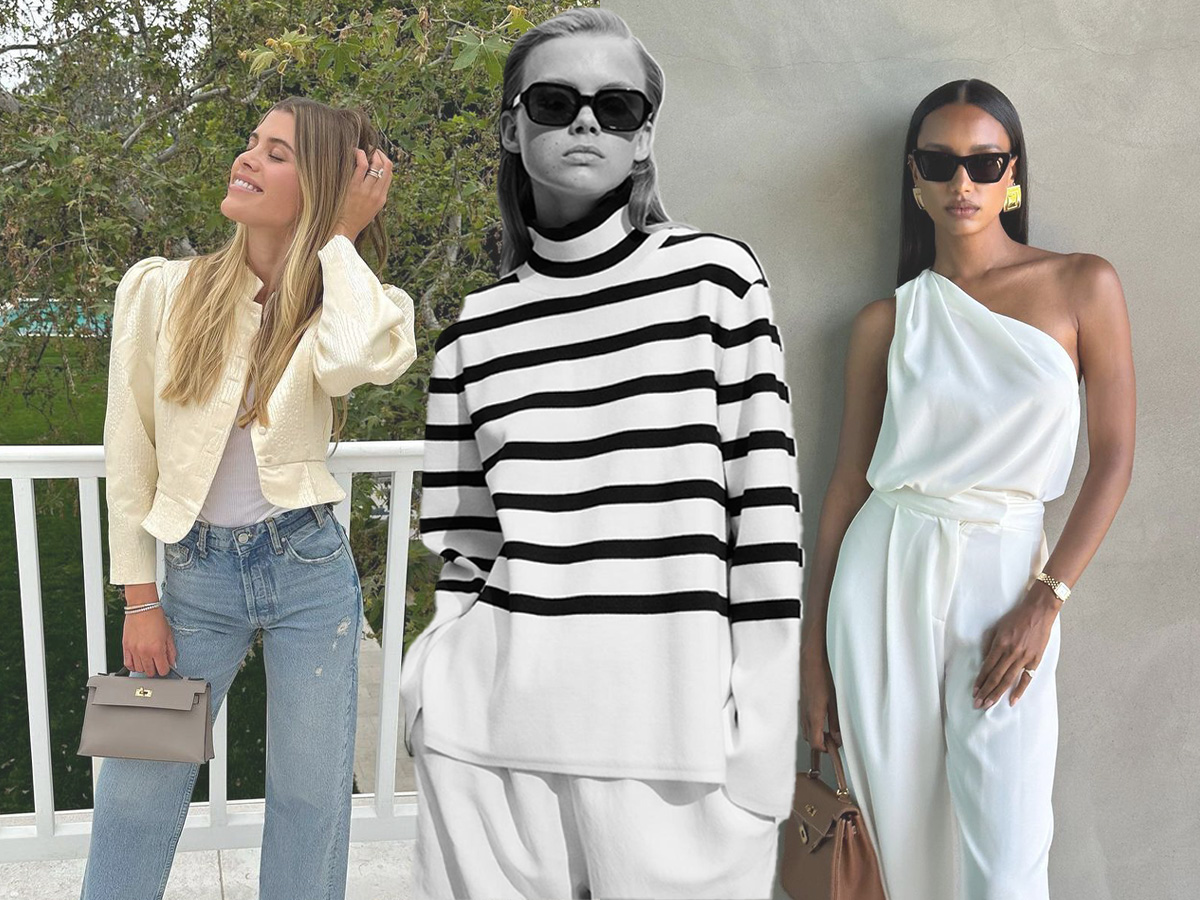
Gen Z Says is a bi-monthly column chronicling the latest trends in the fashion and beauty space through the lens of Who What Wear’s own Gen-Z editors. Expect a download on the upcoming class of tastemakers, emerging designers, and shopping and style choices straight from the generation setting the trends.
As a Gen Zer and self-proclaimed TikTok expert (my screentime can back me up on that), I can say with authority that buzzwords like "rich-looking," and "quiet luxury" are still fueling the fire within the current algorithm. Despite maximal Y2K trends being synonymous with the stereotypical Gen Z look for the past two years, as of recently, it seems the generation has traded funky prints and micro-mini hemlines for more lowkey and wearable styles. Celebrities like Sofia Richie Grainge and Jasmine Tookes have become their guiding posts, and It girls like Kylie Jenner have let go of gaudiness in favor of an era of sophisticated minimalism. (TikTok creator and strategist Tariro Makoni, who often explores the deeper connections between fashion and economy calls this Jenner’s "Sofia Rich-ification.") As a result, Gen Z–targeted brands like Abercrombie & Fitch have completely rebranded to focus on understated pieces like oversize blazers, tailored trousers, and more.
With this industry-wide shift, comes a normal amount of opposition, most of which is being directed not at the brands profiting off of it or the celebrities promoting it, but at those taking the trend and running with it. Videos of users mimicking Richie Grainge's style or referencing the rich aesthetic are met with judgmental comments and questions asking why their generation feels the need to categorize everything. Hypebeast has even gone as far as to question if the new look is "sucking the fun out of fashion."
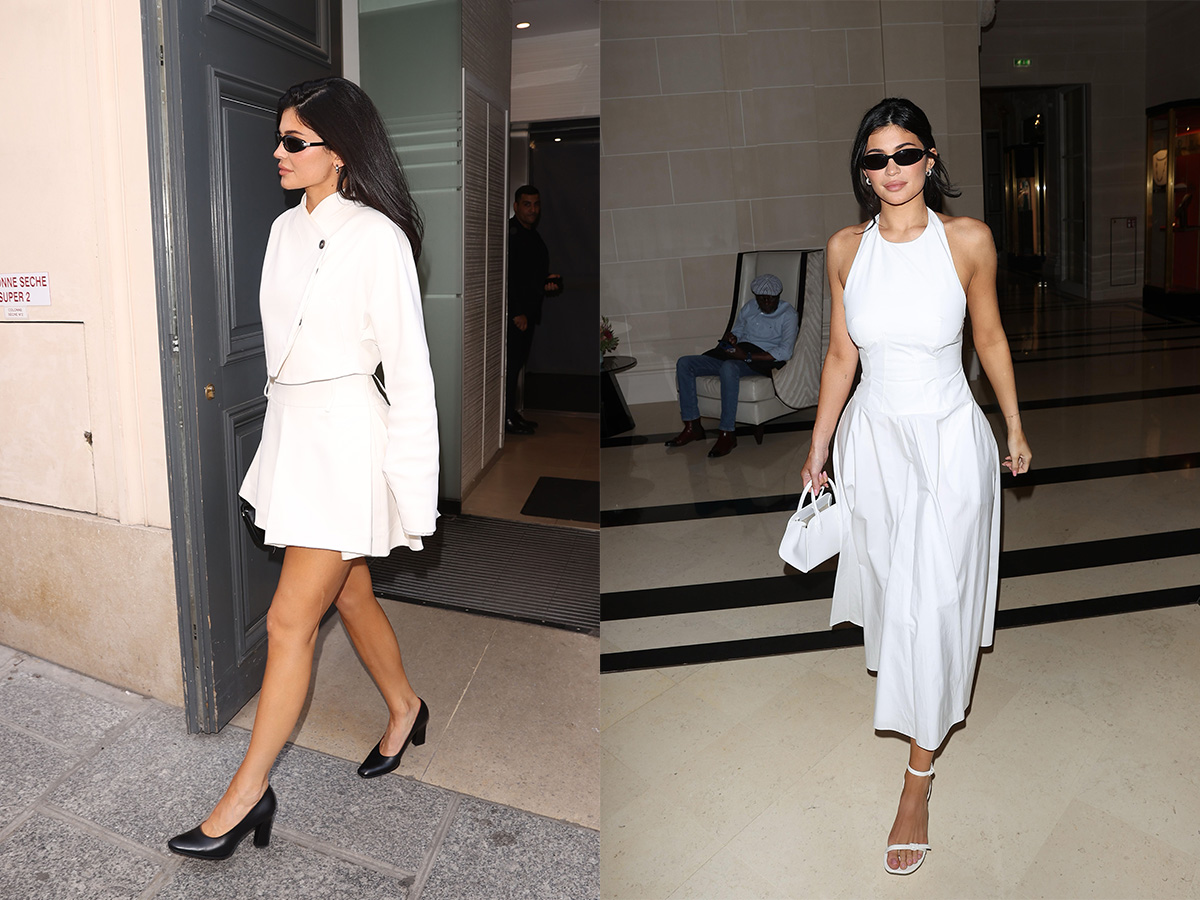
I understand the confusion that lies in the style change. Why is a group once hyper-fixated on brightly-colored and pattern-prone brands like House of Sunny and Heaven by Marc Jacobs suddenly so interested in dressing in basics? Some may say it's a natural result of TikTok users' insistence on chasing after whatever is trending on social media. But after examining history, I'd argue there are a lot of other complex factors involved in the equation.
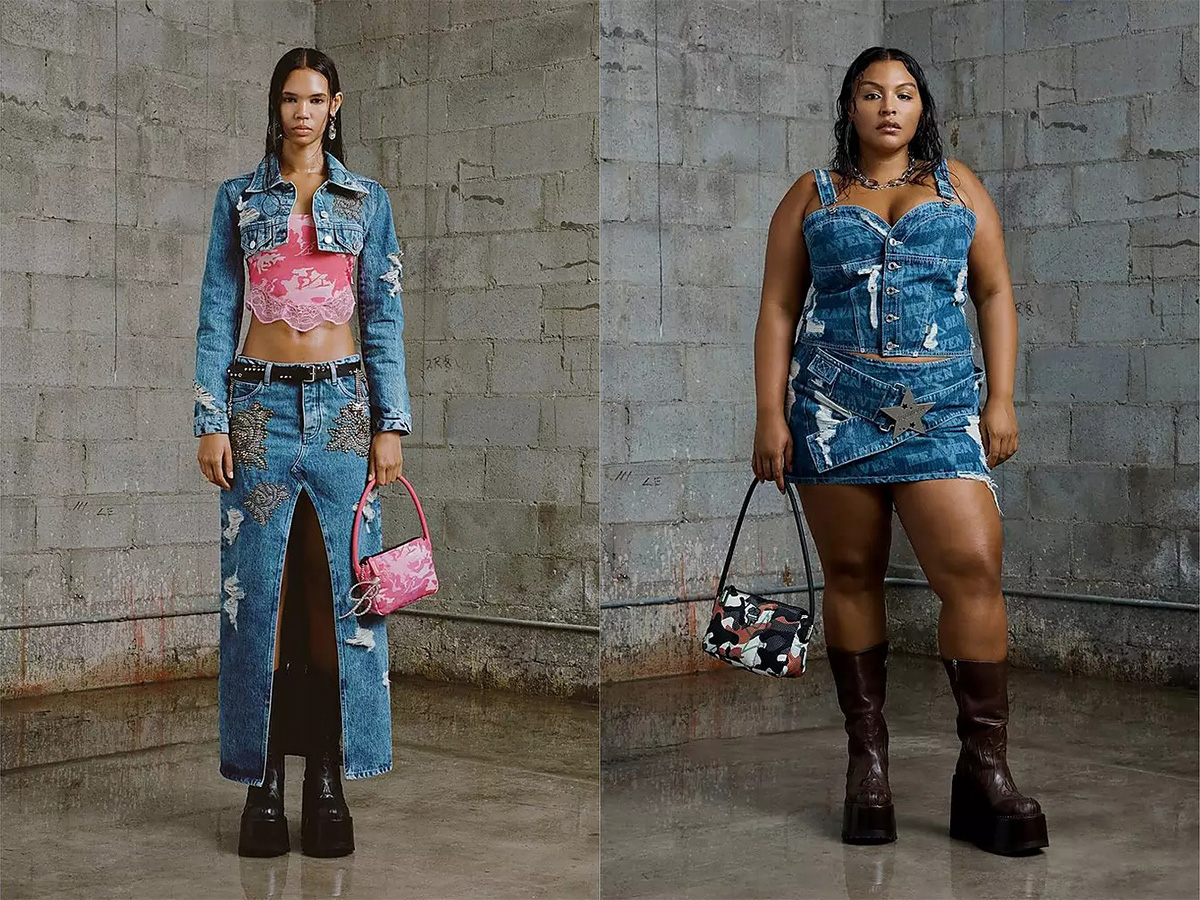
According to an article on the 2009 recession published in The Harvard Business Review, the post-recession consumer had an increased demand for simplicity. "Downturns are stressful and typically increase people's desire for simplicity," co-authors Paul Flatters and Michael Willmott wrote. "Even prior to this recession, many consumers were feeling overwhelmed by the profusion of choices and 24/7 connectivity and were starting to simplify." This could be comparable to the explosion of microtrends we've seen on TikTok in the past year (Barbiecore, Mermaidcore, the list goes on) and Gen Z consumers feeling overwhelmed and resorting to a cleaner palette to drown out the noise.
While the fashion cycle is moving quicker than ever, it can't be blamed on young people simply figuring things out, especially when kids are growing up in an age where the internet is vastly immersive. "You're going to speak about things in a way that helps create some sort of community and has a buzz-oriented energy around it," Makoni says. "Back in the '00s, in the age of print media and longer attention spans, things were packaged into 'Gossip Girl style' or 'grunge,' and that was totally cool and fine. Now, you need a 'core' and something to zip it up and make it clear what you're talking about because there's a proliferation of information at everyone's disposal. How is one supposed to sift through that?"
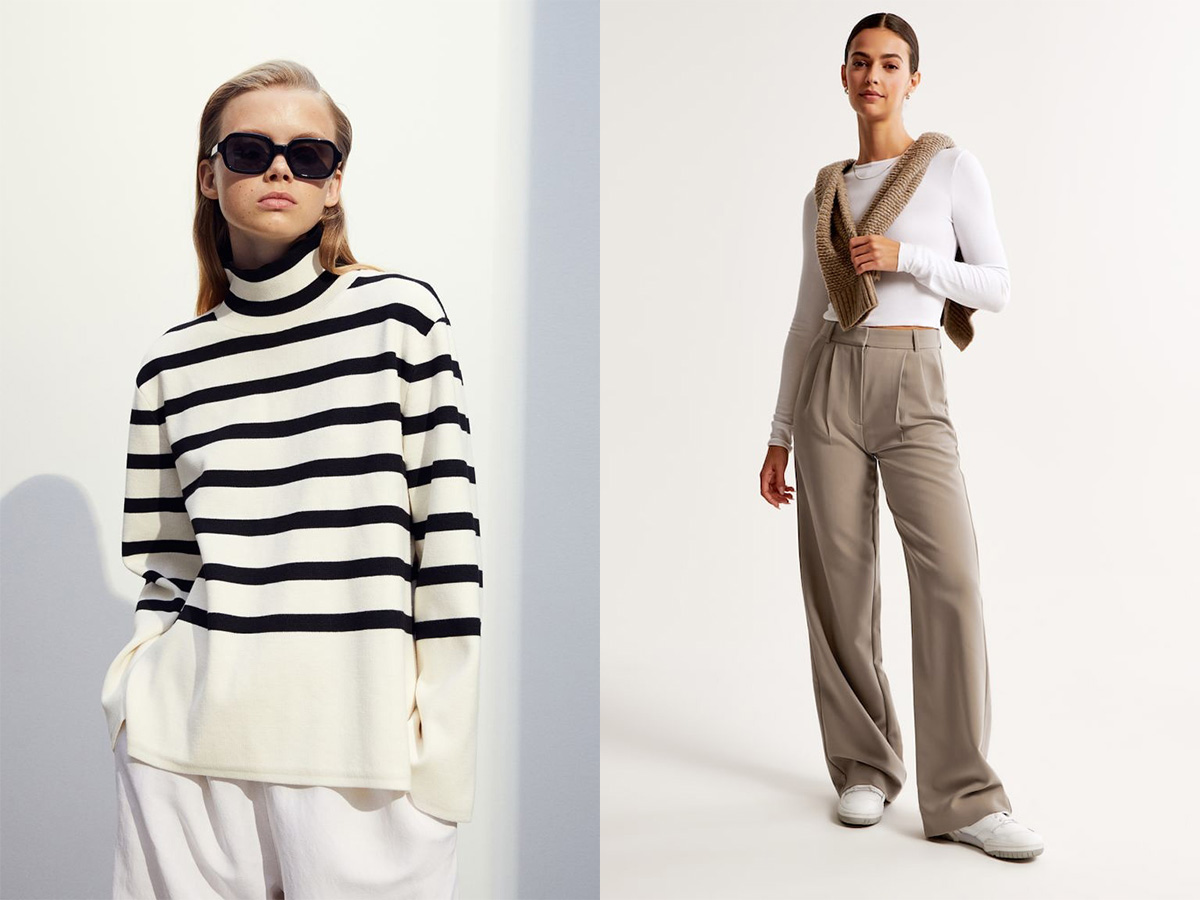
Needing to categorize things into a packaged aesthetic (aka the core-ification of fashion) isn't something Gen Z is entirely responsible for. After Phoebe Philo took over at Celine in 2008, she became an influential figure in post-recession fashion, and her focus on simple clothing became categorized as "normcore" or "recessioncore." Closer to her exit from Celine, maximalism was once again on the rise, with Alessandro Michele skyrocketing Gucci's sales with eccentric prints, glitter, and ruffles galore. In our annual Gen Z report, we surveyed 200 people under the age of 25 and found Gucci ranked the lowest among aspirational luxury brands, which proves the shift in their current fashion interests. And while Michele brought Gucci sales to impeccable heights, he exited as creative director this year, followed by the brand showing their F/W 23 collection, which was full of more wearable looks. It's all clicking.
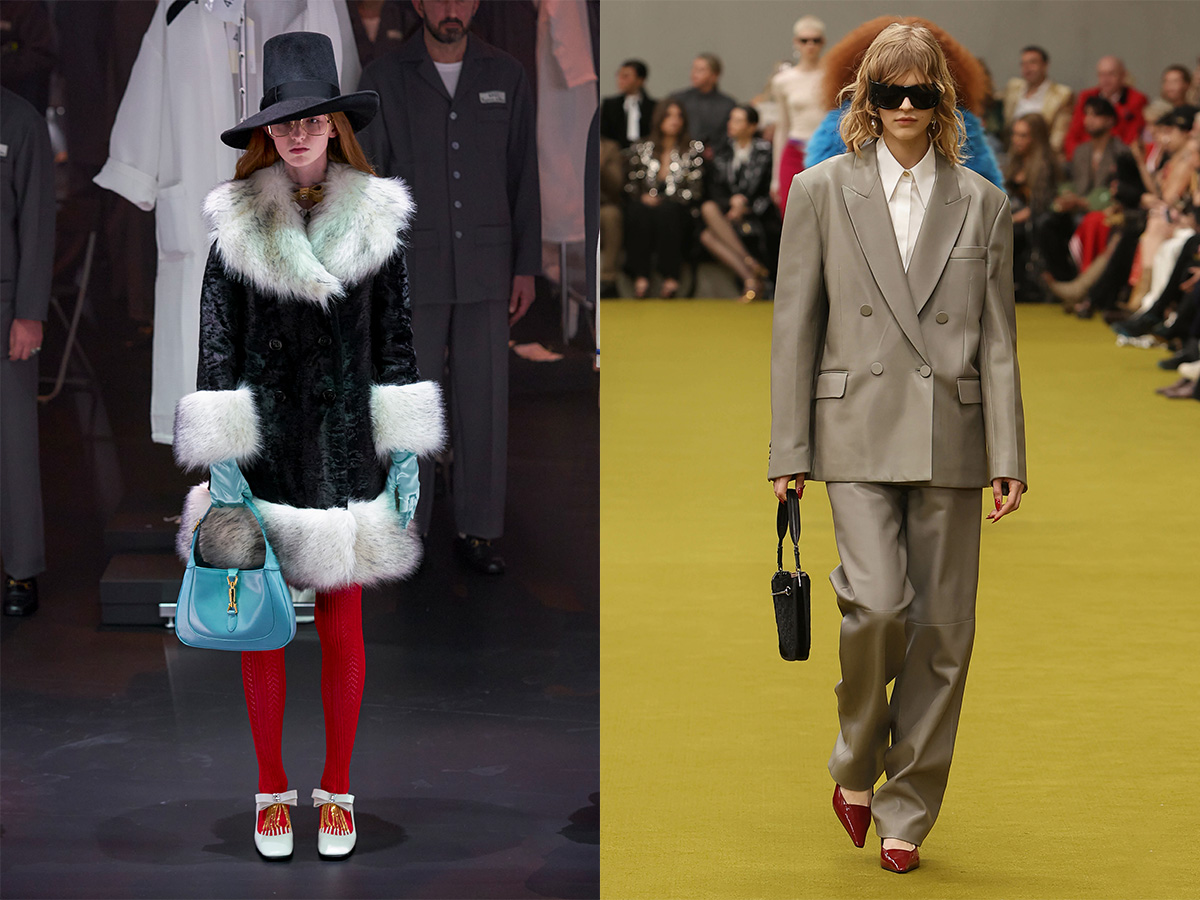
Gucci F/W 21 and Gucci F/W 23
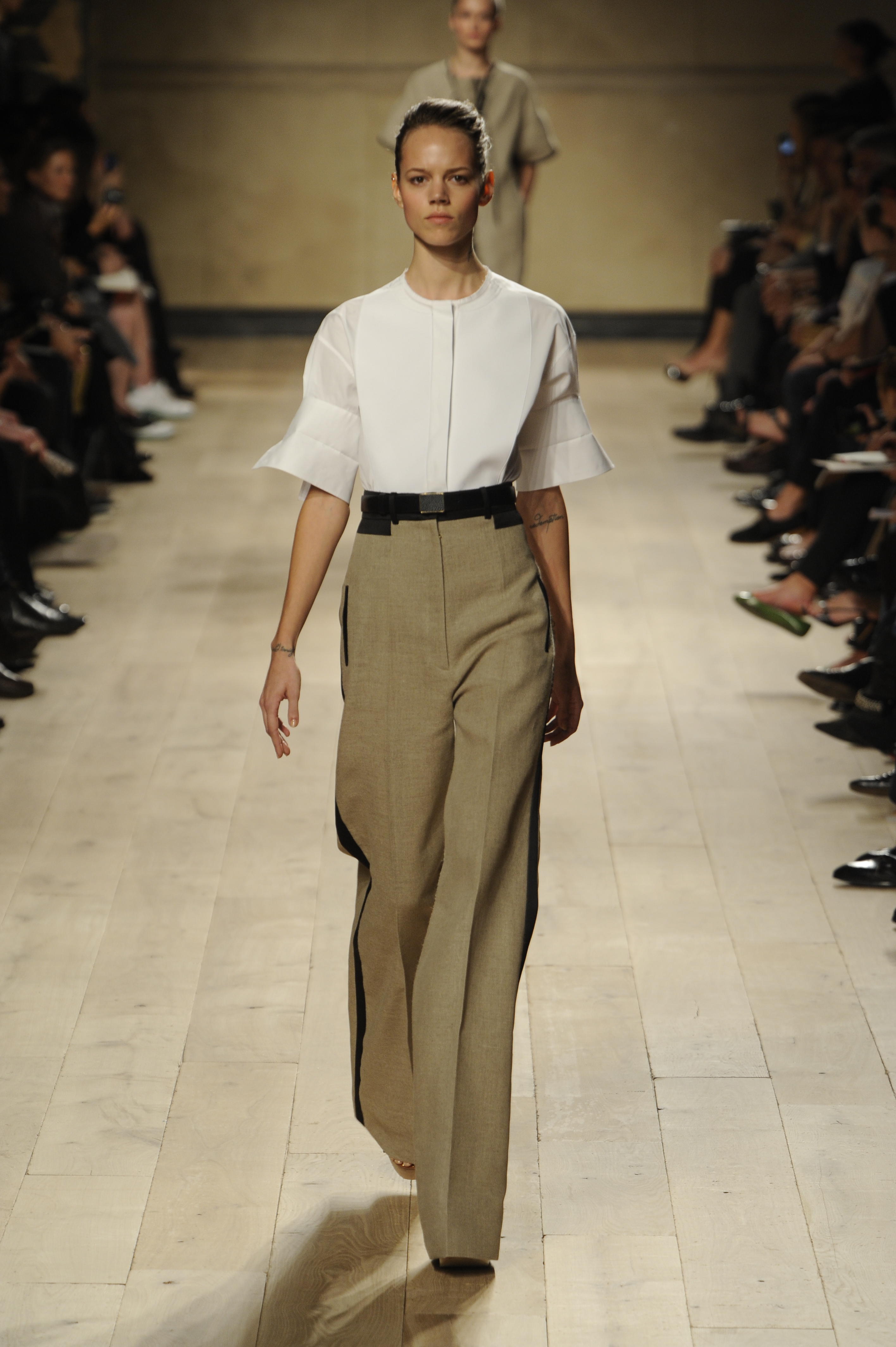
Celine F/W 11
So, yes, Gen Z is leaning toward minimalism. But why is simplicity now described as a luxury when it wasn't in previous times of economic decline? While these simple pieces reflect the current state of luxury brands, logo-less The Row bags and Khaite jeans weren't always what you'd envision when you think about luxury. In the '90s and during the 2009 recession, this look was referred to as "norm" and exemplified the lesser class. The difference between now and then lies in the 2020 pandemic, which stripped control and agency. In 2009, the recession was blamed on consumption and people on Wall Street acting recklessly, so there was widespread social disdain for the rich. (In poll results for The Atlantic, most Americans supported the Occupy Wall Street movement.) While 2020 wasn't a peak of economic demise, there was a sense of emotional awareness, especially for young people graduating and beginning careers during the pandemic.
Makoni explains how both similar methods of inconspicuous consumption become categorized differently. "In 2020, because you were invited into people's homes via Zoom calls and social media, it was one thing to be crammed into a smaller home but then see another person frolicking in their cottage that's clearly not a cottage," Makoni says. "Celebrities were talking about being pent up in their massive mansions. I think that created, for Gen Z, some sort of distorted maze, and then you layer in the inflation crisis, political instability, war, policing women's bodies, and a looming recession."
From there, quiet luxury doesn't seem all that surprising. For a generation that was thrust into a front-row seat to the private and extremely comfortable lives of the wealthy during the pandemic, it becomes transcendent property. The thought becomes, "This person has a ton of money and can do whatever they want, and I want that too."
No longer are young people under the impression that it's gross to be rich. After witnessing the disparity of the pandemic, it became clear that those who had it best were the ones with wealth. Rather than wanting to back away from a rich aesthetic and lifestyle, they're now seeking it out, hoping to leave the struggles they faced during COVID in the past and embrace a less worrisome, more luxurious future. "Wealth doesn't equal seven Range Rovers and posting up on a yacht anymore," Makoni explains. "It can genuinely be a gorgeous cabin in the middle of the woods or a farm and no one talking to you—there are so many ways to navigate [wealth]. The common thread is having the capital to do [whatever you want]. Yes, quiet luxury is minimalism and harkens to the same code as normcore, but we're not exactly hating the wealthy right now. We envy them for what [money] gives them… If we want it, of course, we're going to emulate it. Thus, it becomes quiet luxury and no longer normcore. Because no one wants to be normal anymore."
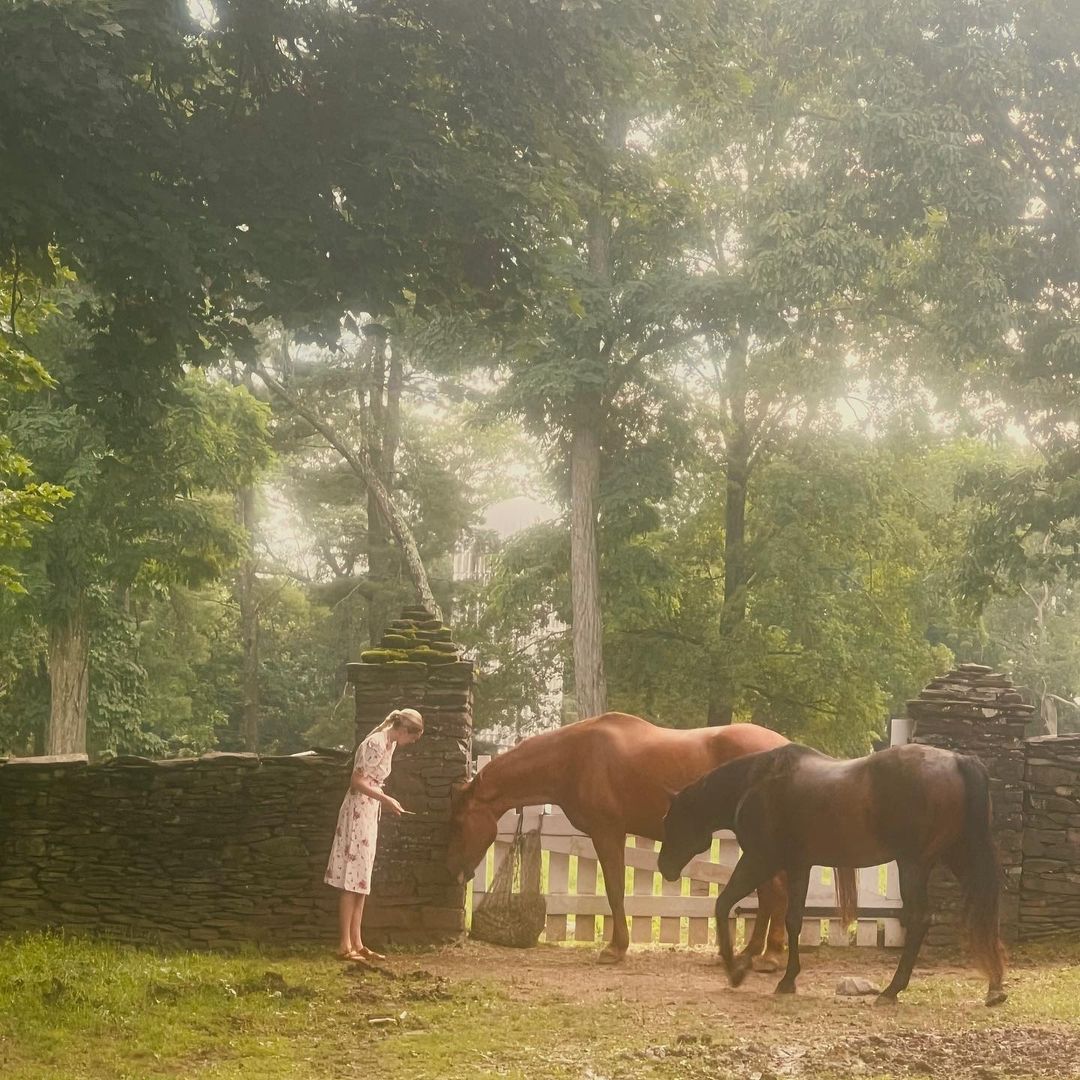
It makes sense why Richie Grainge has become an influential figure in Gen Z's mission to elevate its style. She offers a level of aspiration and authenticity without completely showing you who she is. "Richie touches on all the codes we care about—she's relatable and aspirational. She doesn't overshare. You don't have enough access to her to completely be her, so you're picking up clues about her," Makoni says. "She is an old-school influencer in that way where you didn't have so much access to these people with AMAs (ask me anything), and they're just [a] cool person you can idolize on the internet with no drama around." Despite being clad in Chanel and Khaite, her style offers a relatable essence that still feels reachable. "The issue with other celebrities that are incredible at dressing is that they're not wearable with average [financial] means. You can re-create a Sofia Richie outfit by going to J.Crew, Zara, and Mango," explains Makoni.
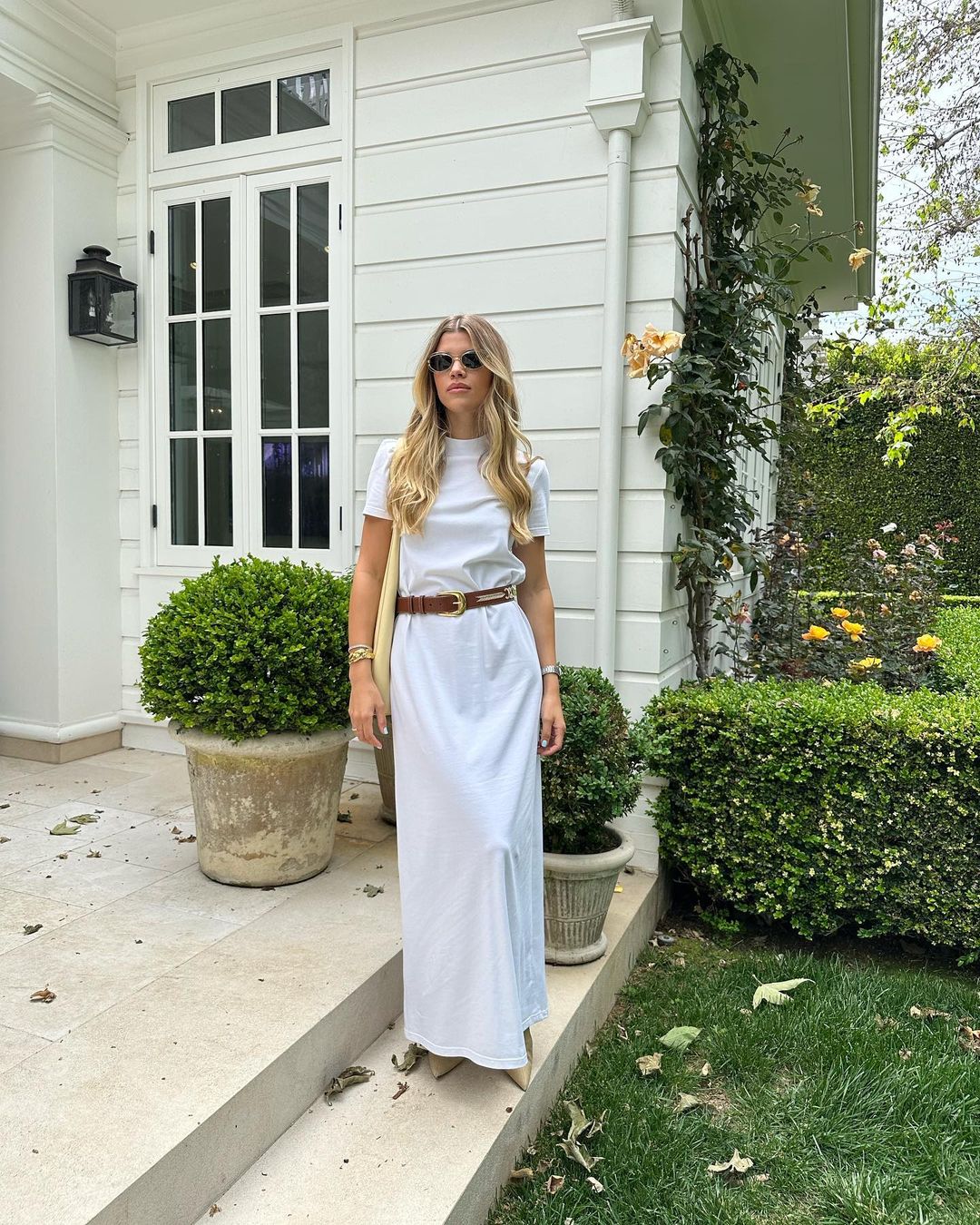
I'm not knocking the notion that Gen Z shouldn't be more aware of their consumption, and there's a hope that their current focus on minimal fashion will slow down the trend cycle. But, there will always be a sartorial response to the state of the world, with psychological and financial implications correlating to creating cultural aesthetics. It's all more connected than we truly realize. It's easy to blame the younger generation, but the cycle will continue. Everyone in fashion comes and goes, and Gen Z will repeat the trends of the past. That's just the way the cookie crumbles.
Items Defining the Trend:
1. Sleek Maxi Skirts
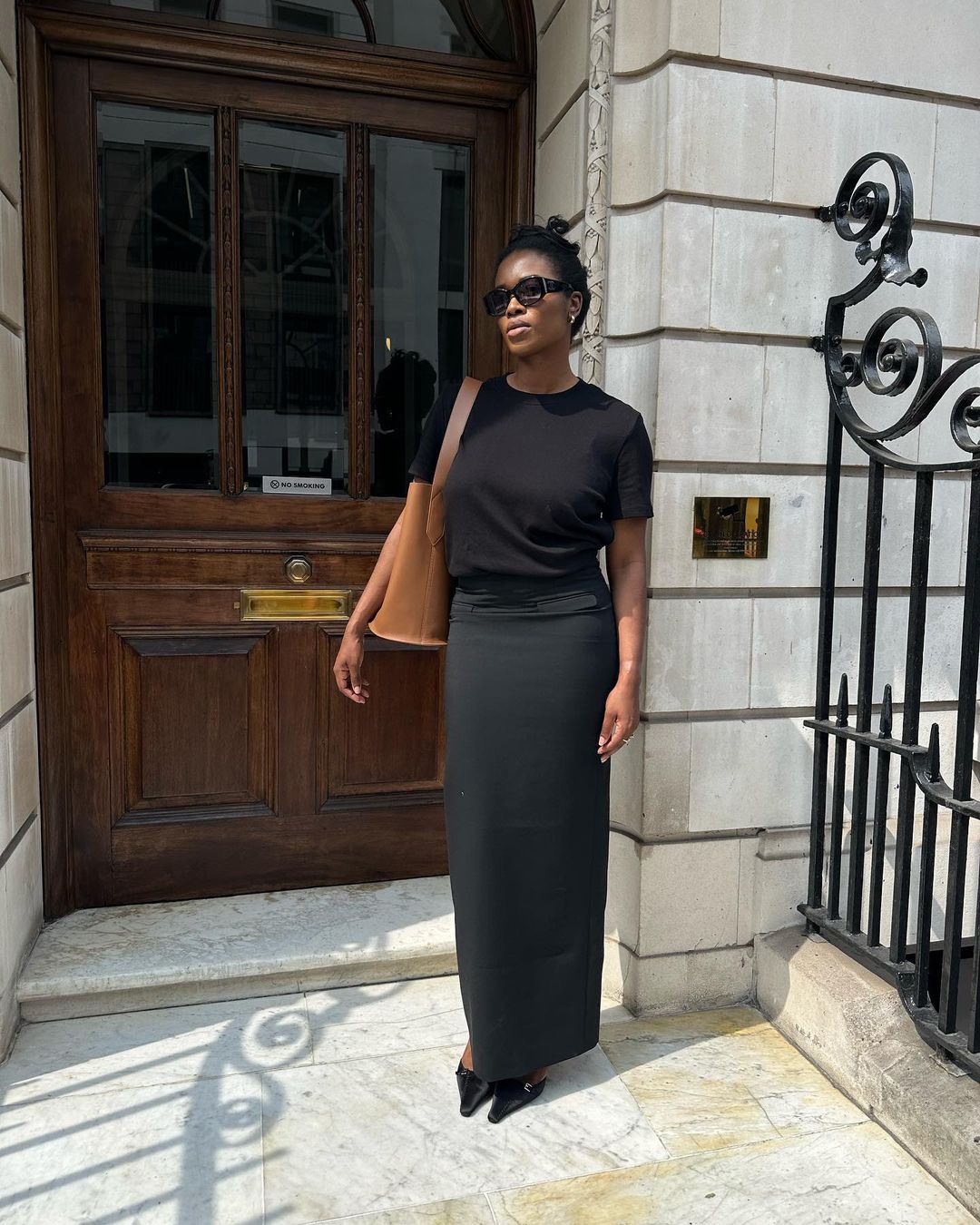
Micro minis aren't completely out of the picture, but they've been pushed aside in favor of long column skirts.
2. Oversize Blazers
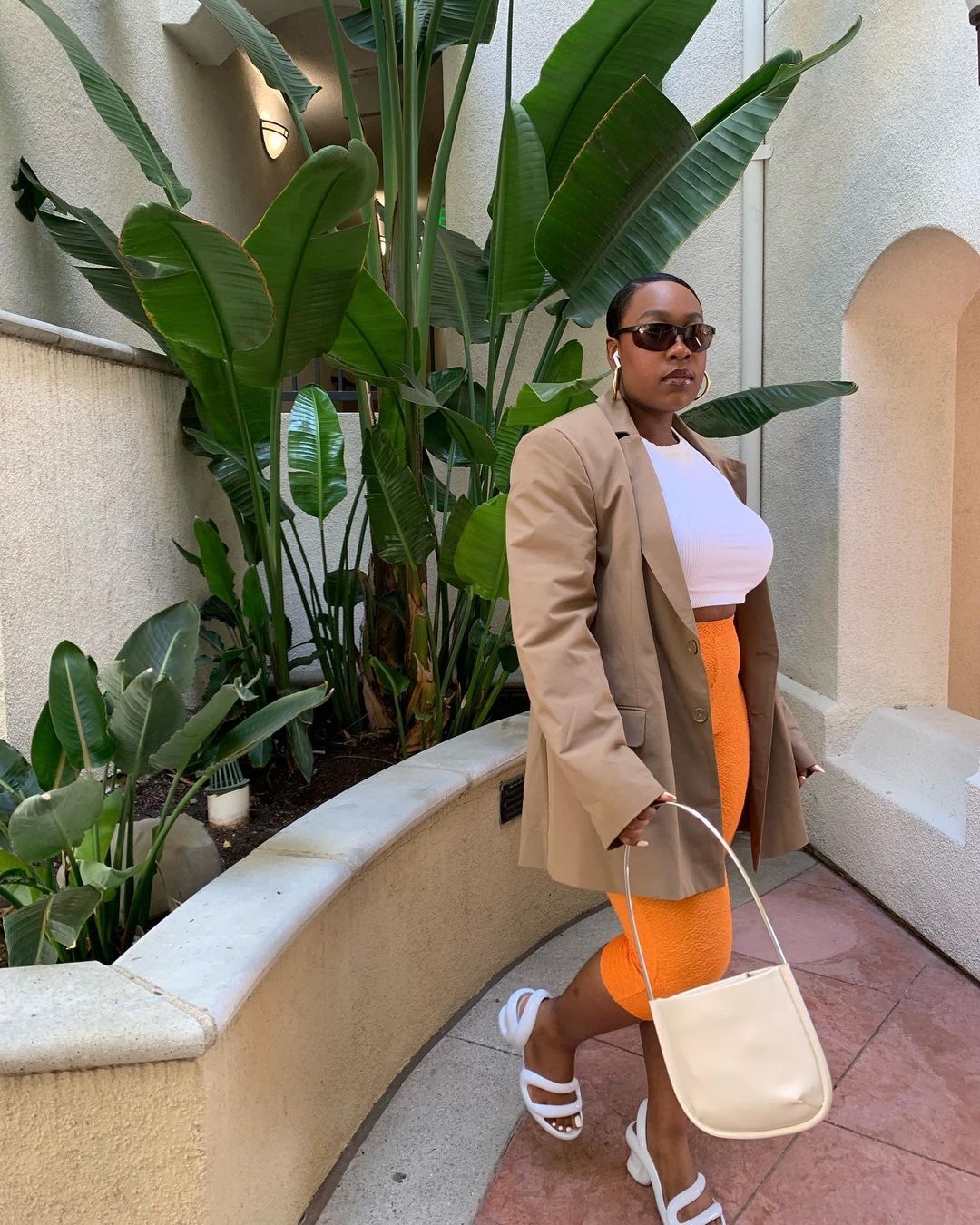
Millennials have already been quick to compare Gen Z's love of business casual clothing to the mid-'00s when everyone wore a blazer to the club. They're not wrong. This time, however, the fit is a bit more relaxed and muted, and neutral tones are prioritized. It is a timeless piece of tailoring, but the desired fit and silhouette will no doubt change with the trend cycle.
3. Puddle Pants
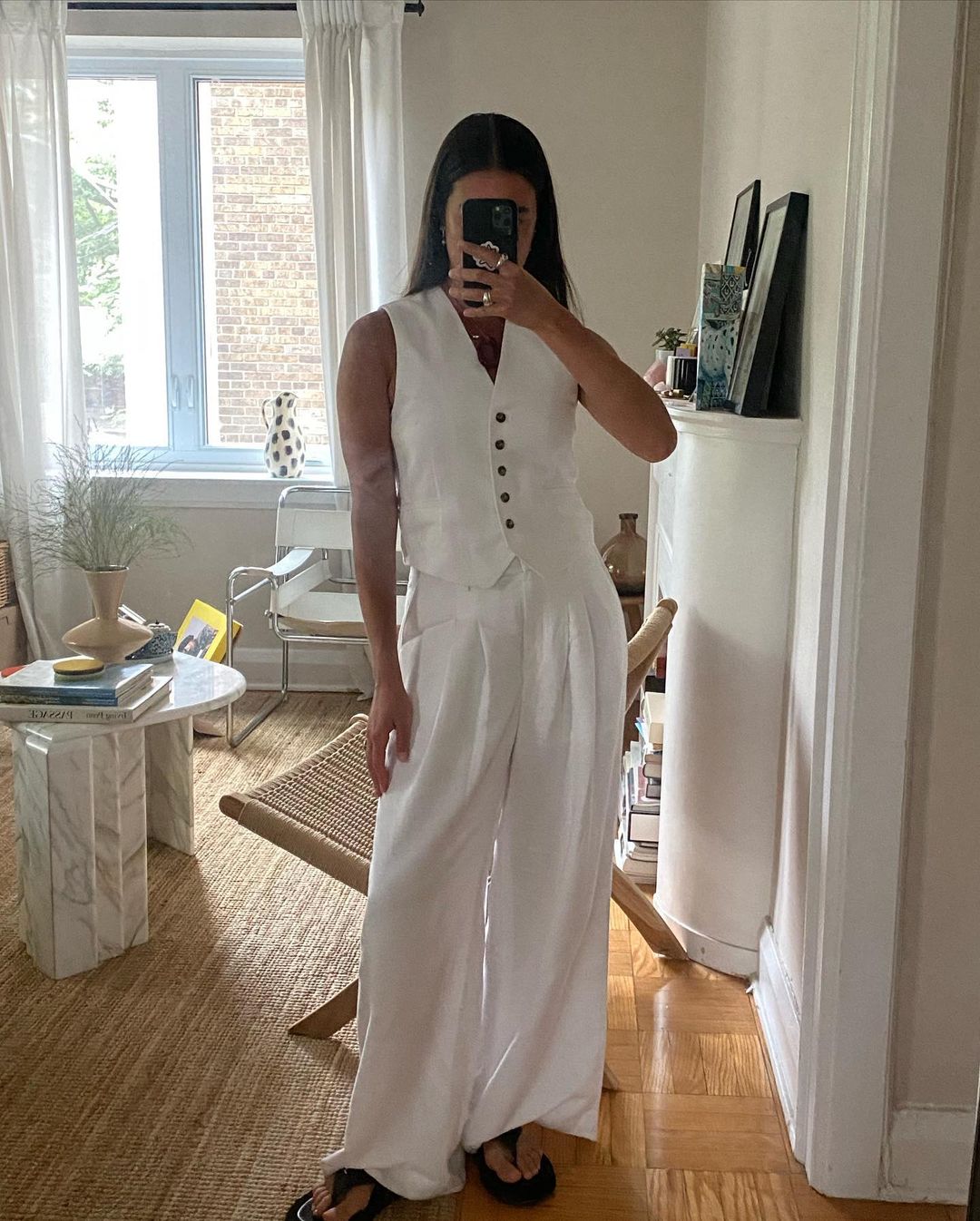
To keep things from looking too uptight, relaxed trousers offer more of a casual and nonchalant touch to an outfit that may feature more polished pieces.
4. Logo-less Handbags
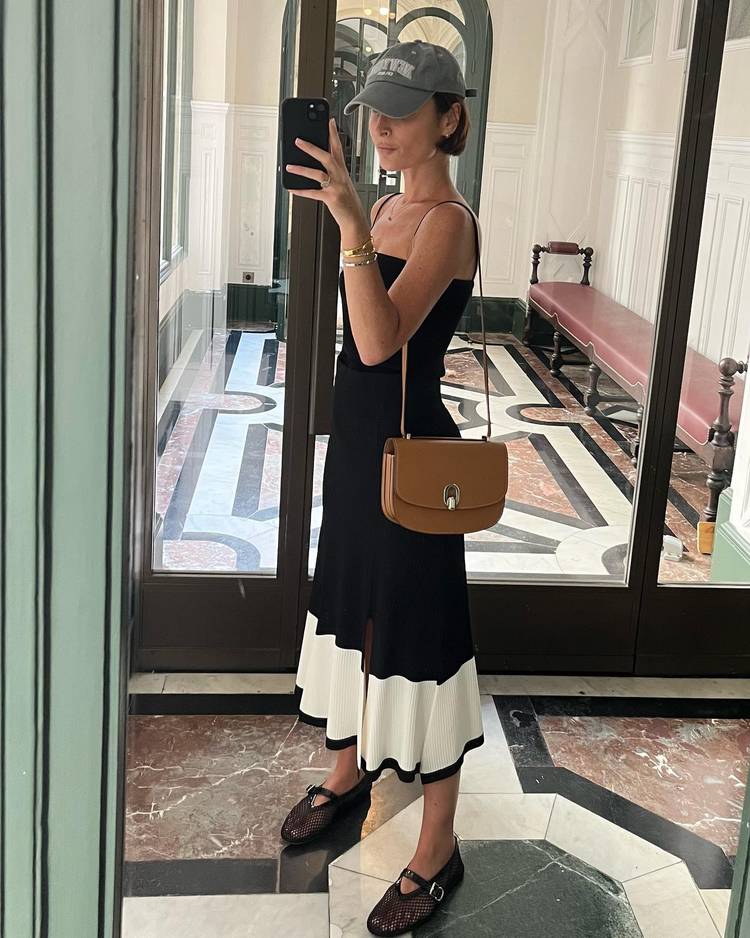
Having the best handbag isn't about having one with the biggest or brightest logo. Instead, it's about the bag's discreetly stylish elements.
5. Ballet Flats
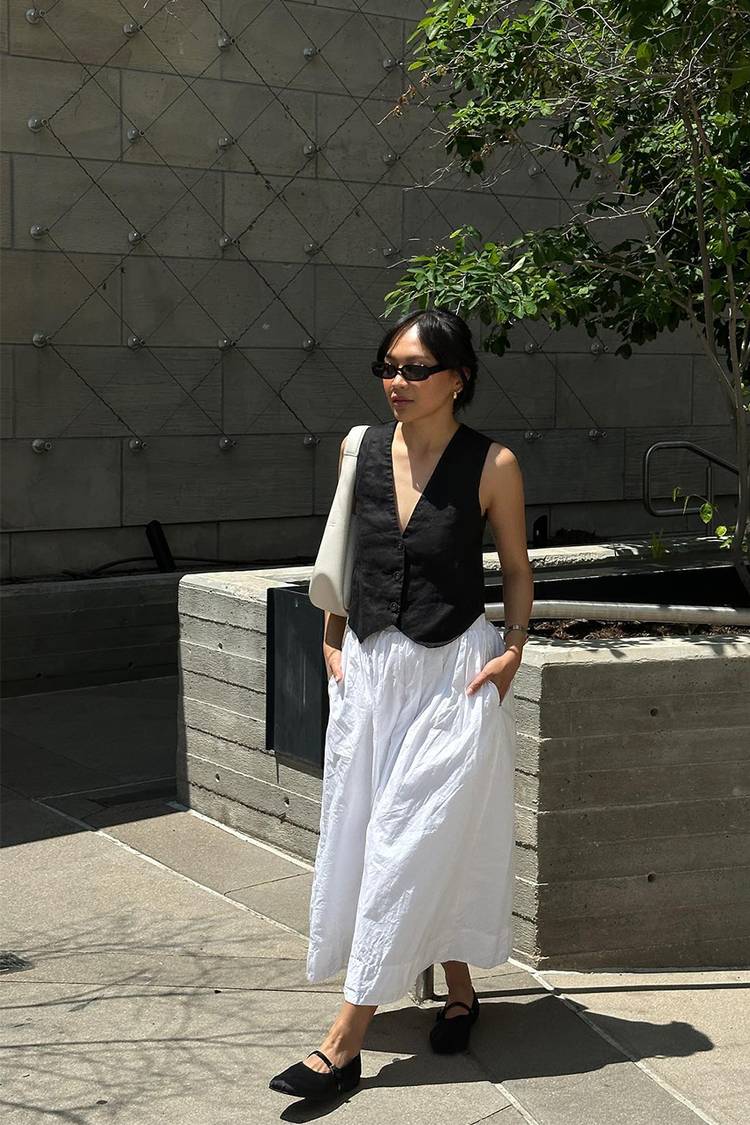
Sky-high heels aren't what you envision when you think about the luxe look. It's now all about a classic pair of ballet flats.
After interning at Who What Wear in 2019, Yusra Siddiqui found her way to the team after graduating with a fashion media degree. She's also spent time writing and working for publications such as Fashionista, Coveteur, Nylon, and Allure. When she's on the job, she's perusing runway shows, analyzing the latest social media trends, and diving deep into all things Gen Z-related.
